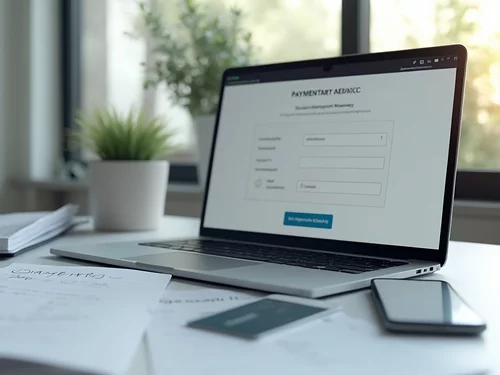Have you ever wondered what it takes to create a secure online shopping experience for your customers? As the e-commerce landscape evolves, the importance of payment security has never been more crucial. Let's explore how Australian businesses can protect their customers and their bottom line.
What You Will Learn
- The significance of consumer trust in driving sales and loyalty in the e-commerce space.
- Key regulatory standards such as PCI DSS and ASIC guidelines that ensure compliance and protect businesses.
- Effective technical measures like encryption and multi-factor authentication that enhance payment security.
- Fraud prevention techniques, including AI detection and behavioral analytics, tailored for the Australian market.
- The benefits of partnering with reputable payment processors to enhance security and customer support.
- Strategies for effectively communicating security measures to build customer confidence.
Key Pillars of E-commerce Payment Security
Ensuring robust payment security involves a combination of regulatory compliance, technical measures, and proactive fraud prevention. We've highlighted the main aspects below.
1Regulatory Standards
Adhering to essential guidelines like PCI DSS and ASIC is crucial for legal operation and consumer protection.
- PCI DSS Compliance
- ASIC Guidelines
2Technical Measures
Implementing robust technical safeguards to protect sensitive data during online transactions.
- Data Encryption
- Tokenization
- Multi-factor Authentication
3Fraud Prevention
Proactive strategies to detect and mitigate fraudulent activities in real-time and over time.
- AI Fraud Detection
- Behavioral Analytics
- Regular Security Audits
4Trusted Partnerships
Collaborating with reliable payment processors and gateways to ensure secure and efficient transactions.
- Secure Payment Processors
- Reputable Payment Gateways
Understanding Payment Security in E-commerce for Australian Businesses
As we dive into the world of e-commerce, one topic stands out as crucial for success: payment security. In Australia, where online shopping continues to thrive, it’s vital for businesses to foster consumer trust and safeguard against fraud. Without a solid payment security framework, you risk losing customers and facing significant financial losses.
Think about it—when customers feel secure about their payment information, they're more likely to complete their purchase. This sense of security not only increases conversion rates but also builds long-term loyalty. At Build My Online Store, we prioritize equipping you with the knowledge to navigate these challenges, ensuring your online store remains a safe haven for customers.
Why Payment Security Matters in the Australian E-commerce Landscape
In today's digital marketplace, payment security is paramount. Here's why it matters:
- Consumer Trust: Customers need confidence that their sensitive data is protected during transactions. Recent trends indicate that consumer complaints related to data privacy and security continue to be a significant concern, as highlighted in the FTC's Privacy and Data Security Update.
- Fraud Prevention: Effective payment security measures help protect both consumers and businesses from burgeoning fraud attempts. The IC3's annual report consistently shows the rising financial losses due to various internet crimes, emphasizing the need for robust fraud prevention.
- Compliance: Adhering to regulatory standards ensures your business operates legally and minimizes potential legal challenges, as discussed in the Federal Reserve's notes on payment systems.
When we prioritize payment security, we create a shopping environment where customers feel valued. This assurance can significantly enhance your brand's reputation in the competitive Australian e-commerce landscape!
Key Regulatory Standards for E-commerce Payment Security
Australia has established several regulations to ensure payment security for online businesses. The most critical ones include:
- PCI DSS: The Payment Card Industry Data Security Standard sets the benchmark for businesses that handle credit and debit card transactions.
- ASIC Guidelines: The Australian Securities and Investments Commission provides regulations that protect consumers from fraudulent practices in financial services.
Understanding these regulatory frameworks is essential for Australian e-commerce businesses. Compliance not only protects your customers but also shields your business from potential legal repercussions. As we delve deeper into best practices, keeping these guidelines in mind will be invaluable for building a secure online store.
Implementing Best Practices for Secure Online Payments
Technical Measures: Building Robust Security Layers
To fortify your online payments, it's crucial to implement strong technical measures. Key components include:
- Encryption: This process scrambles sensitive data, making it unreadable to unauthorized users.
- Tokenization: By replacing sensitive card information with a unique identifier, you can enhance security during transactions.
- Multi-factor Authentication (MFA): This adds an extra layer of security by requiring users to verify their identity through multiple means.
At Build My Online Store, we emphasize the importance of these measures. They not only protect your business but also reassure your customers that their payment information is handled with care and respect.
Fraud Prevention Techniques Tailored for E-commerce
In the Australian e-commerce landscape, being aware of common fraud types is essential. Here are strategies to combat fraud effectively:
- AI Detection: Leveraging artificial intelligence can help identify suspicious transactions in real time.
- Behavioral Analytics: Monitoring user behavior can alert you to anomalies that may indicate fraud attempts.
- Regular Audits: Conducting frequent reviews of payment processes can uncover vulnerabilities.
Taking a proactive approach to fraud prevention not only protects your revenue but also maintains your customers' trust. By implementing these techniques, you can create a safer shopping experience for everyone!
Partnering with Trusted Payment Processors
Choosing the right payment processor is a vital step in enhancing your e-commerce security. Consider these benefits of partnering with reputable payment gateways:
- Enhanced Security Features: Established processors often provide advanced security measures built into their systems.
- Reputation: Associating with recognized brands can lend credibility to your business.
- Customer Support: Reliable processors typically offer robust customer service to assist with any issues.
At Build My Online Store, we recommend selecting payment processors that align with your business values and security needs. Doing so can pave the way for smoother transactions and a better customer experience.
Communicating Security Measures to Consumers
It's essential to communicate your payment security measures effectively. Here are strategies to reassure customers:
- Transparency: Clearly outline your security protocols on your website.
- Trust Badges: Displaying certifications can enhance credibility.
- Customer Education: Providing tips on safe online shopping can empower consumers.
By being upfront about your security measures, you can foster a stronger connection with your customers, making them feel confident in their decision to shop with you.
Understanding Payment Gateways and Their Role in Security
Payment gateways are crucial for secure payment processing. They act as the bridge between your store and the bank, ensuring transactions are handled safely. Popular options include:
- PayPal: Known for its user-friendly interface and strong buyer protection policies.
- Stripe: Offers customizable payment solutions with advanced security features.
- Square: Provides seamless integration for both online and in-person sales.
Understanding the role of these gateways helps you choose the right one for your business needs. The right payment gateway not only ensures secure transactions but also enhances the overall shopping experience.
Pro Tip
Did you know? Regularly updating your payment security practices can significantly reduce the risk of fraud. Consider scheduling a quarterly review of your security protocols and staying informed about the latest vulnerabilities and solutions in the e-commerce landscape. This proactive approach not only protects your business but also enhances customer trust and loyalty.
Frequently Asked Questions About E-commerce Payment Security
Summarizing Key Insights on Payment Security for E-commerce
In today's digital marketplace, the importance of implementing robust payment security measures cannot be overstated. Australian e-commerce businesses face unique challenges when it comes to safeguarding transactions and protecting customer data. By prioritizing payment security, we not only enhance consumer trust but also shield our businesses from potential fraud and cyber threats.
As we've discussed, compliance with regulations such as PCI DSS and local guidelines is crucial. These measures ensure that we are not only meeting legal requirements but also adopting best practices that reflect our commitment to security. It’s essential to be proactive rather than reactive in this ever-evolving landscape!
Taking Action Towards Improved Payment Security
Now that we’ve explored the various aspects of payment security, it's time to take action. I encourage you to assess your current payment security practices. Are they up to date? Consider implementing the best practices we've outlined in this guide to enhance your security posture and protect your customers.
Here are some practical steps you can take to start improving your payment security:
- Conduct a security audit to identify vulnerabilities in your payment processing system.
- Implement multi-factor authentication (MFA) to enhance user security.
- Stay informed about the latest security updates and regulations.
- Engage with your payment processor to understand their security features and protocols.
Taking these steps will not only strengthen your defenses but also instill greater confidence in your customers. When they know their transactions are secure, they are more likely to engage with your store!
Explore Further Resources and Support
To help you on this journey towards enhanced security, I highly recommend checking out authoritative resources such as the Australian Cyber Security Centre (ACSC). They provide comprehensive guidelines and tools for businesses looking to improve their payment security and overall cybersecurity posture. Additionally, consider exploring the following resources:
- PCI Security Standards Council - Essential information on PCI compliance.
- Australian Competition and Consumer Commission (ACCC) - Insights on consumer protection in e-commerce.
- business.gov.au - Various resources for Australian small businesses.
Utilizing these resources will empower you to make informed decisions and bolster your payment security measures effectively. Remember, at Build My Online Store, I'm here to support you on your e-commerce journey!
Recap of Key Points
Here is a quick recap of the important points discussed in the article:
- Consumer Trust: Payment security is essential for building trust with customers, encouraging them to complete purchases.
- Regulatory Compliance: Adhering to standards like PCI DSS and ASIC guidelines is crucial for legal operation and customer protection.
- Technical Measures: Implementing encryption, tokenization, and multi-factor authentication can significantly enhance security.
- Fraud Prevention: Utilizing AI detection and behavioral analytics helps identify and prevent fraudulent activities.
- Trusted Payment Processors: Partnering with reputable gateways enhances security and provides credibility to your business.
- Effective Communication: Clearly outlining security measures on your website fosters consumer confidence.









